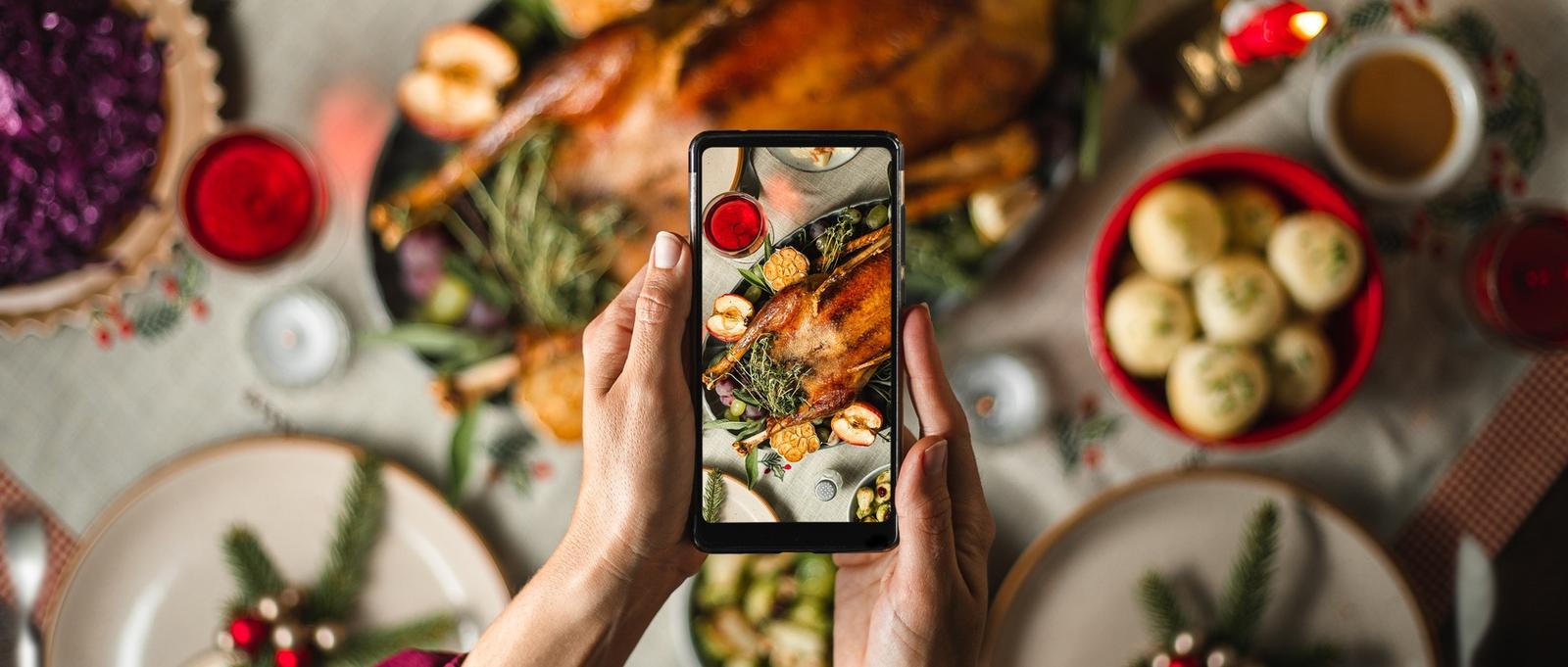
9 food swaps for a delicious and healthy Christmas dinner
Peer reviewed by Dr Krishna Vakharia, MRCGPLast updated by Victoria RawLast updated 2 Dec 2024
Meets Patient’s editorial guidelines
- DownloadDownload
- Share
- Language
- Discussion
Being healthy may not always be the first thing on your mind on Christmas day. But what if we said you could make some nutritious food swaps so your Christmas dinner's just as tasty, but secretly healthier?
In this article:
Continue reading below
1. Olive or avocado oil for roasties
Roast potatoes are the stars of Christmas dinner for many people. Without sacrificing their crispy exterior, you can make your spuds healthier by roasting them in olive oil or avocado oil instead of unhealthy saturated fats like butter, goose fat or lard.
Dr Kevin Huffman, bariatric physician and CEO of Ambari Nutrition, says: "These oils are monounsaturated fats, which means they contain far more nutrients, and can improve your cholesterol levels."
As for taste, avocado and extra virgin olive oil both have high smoke points which make them perfect for roasting to get a crispy finish. Avocado oil has a neutral flavour, while olive oil from different areas has different aromas. From France it's buttery and nutty, from Italy it's herbal and peppery, and from Greece it's fruity and fragrant.
Roast potatoes with olive or avocado oil
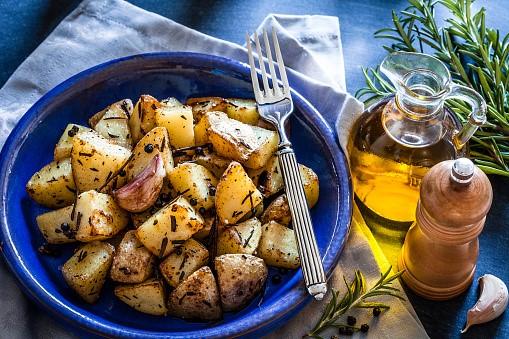
2. Leaner meats
If you love traditional turkey for your protein, no swaps here are necessary.
According to Keri Glassman, dietitian and founder of Nutritious Life, loading up your plate with turkey - instead of fattier meats like ham and beef - is actually one of the best things you can do.
She says: "Turkey is a lean quality protein and is very satisfying. Don't be afraid of the dark meat. Yes, it is higher in fat and calories, but it will also be more filling - and could help you eat less sweets. What you should skimp on is the skin."
Dr Menka Gupta, Nutra Nourish, also recommends salmon.
"Fatty fish is another lean protein source that also provides essential amino acids and omega-3 fatty acids," she explains. "These compounds support muscle health and reduce inflammation - which increases cell damage and likelihood of disease."
Christmas turkey
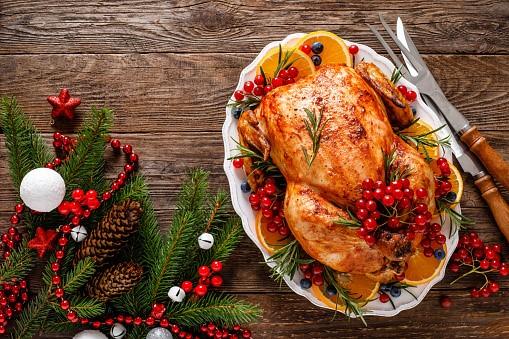
Continue reading below
3. Veggie whole grain stuffing
Stuffing is another festive treat that need not be bad for you. In fact, according to Gupta, you can pack in the nutrients while adding more flavour.
She says: “Swap white bread-based stuffing with sausage for whole grain or multigrain bread stuffing, with a mix of colourful vegetables, nuts, and dried fruits. Whole grains provide fibre which supports your gut health, and the variety of vegetables offers a range of phytonutrients, which promote a healthy balance of gut bacteria."
This has long-term benefits, as well as helping healthy digestion - something that most of us need after the over-indulgence of Christmas day.
"If you wish to add animal protein, consider using lean turkey or chicken sausage instead of pork," Gupta adds.
Whole grain stuffing
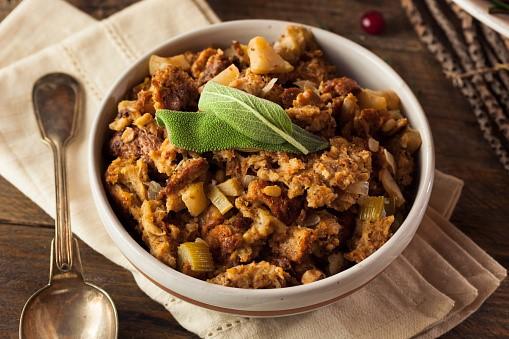
4. Whole wheat gravy
Gravy is essentially flour, fat and spices. You can make it healthier by choosing healthier flour, a broth base, and by limiting or swapping salt for mouth-wateringly aromatic herbs, such as rosemary, thyme or sage.
Glassman advises: "Use a heart-healthy flour instead of white flour, such as whole wheat flour. If you're not in control of your gravy, stick with portion control of whatever your host is serving. Use 1-2 tablespoons and call it a day."
Gupta adds that a lower intake of salt can lead to lower blood pressure regulation.
Whole wheat gravy

Continue reading below
5. Cauliflower mash
Not everyone agrees that mashed potato belongs on your Christmas plate. But for those who love it, Huffman suggests swapping potatoes for cauliflower.
"Transforming mashed potatoes into cauliflower mash offers a creative, nutritious swap for side dishes," he says. "Cauliflower mash is lower in calories and higher in fibre, providing all the taste, with just a fraction of the traditional potatoes calorie and carbohydrate content."
If you can't say no to mashed potato on Christmas day, simply swap poor quality butter and cream for a moderate amount of high-quality grass-fed butter and a splash of skimmed or semi-skimmed milk.
Cauliflower mash
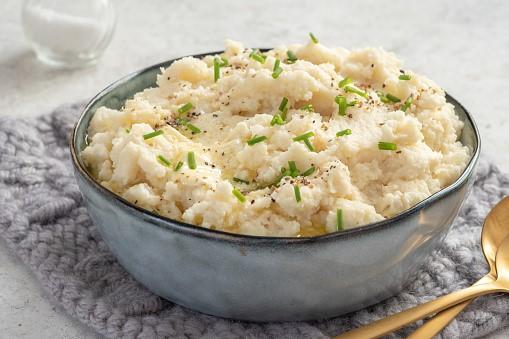
6. Steamed or roasted veggies
How you treat your veggies can make all the difference. Instead of frying them in lots of butter or oil, steam them or roast them with a little avocado or olive oil to help reduce unnecessary fat.
Roasting also tends to bring out the sweetness in carrots and parsnips. These two festive veggies are rich in fibre, potassium, antioxidants and vitamins - including immunity-boosting vitamin C. Carrots also deliver beta carotenes, compounds, which promote healthy skin.
Finally, make sure green is a feature on your Christmas dinner plate - whether this be broccoli, green beans, peas, or sprouts. Green vegetables like these are packed with antioxidants, iron, vitamins and important minerals.
Roasted vegetables
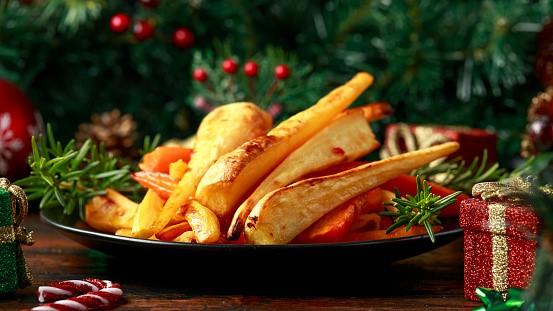
7. Wholemeal bread sauce
If you have time to make your own bread sauce instead of buying pre-made, this can significantly reduce the calories, sugar and salt content of your festive feast.
For homemade bread sauce, swap white bread and cream for heart-healthy wholemeal bread and skimmed milk. Adding onion, cloves, black pepper and nutmeg are all healthy ways to pack in flavour.
Wholemeal bread sauce
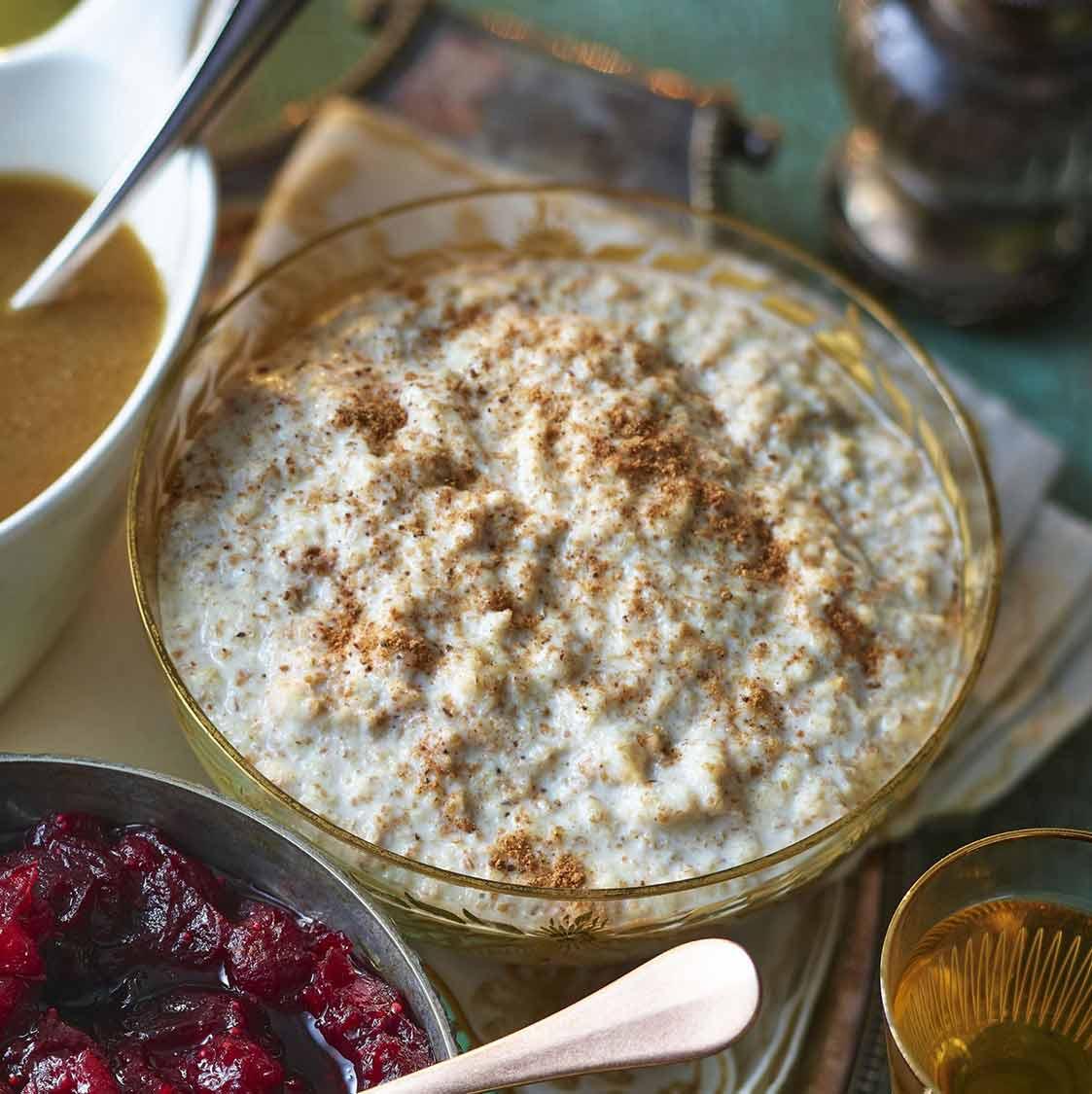
8. Naturally sweetened cranberry sauce
Cranberry sauce will always contain sugar, but if you make it at home, you can use healthier, natural sugars instead of the highly refined sugar found in most shop-bought options.
Gupta suggests replacing tinned cranberry sauce with a healthier homemade cranberry sauce made with natural sweeteners like honey or maple syrup.
"This swap reduces added refined sugars which supports better blood sugar control and insulin sensitivity, reducing related health issues," she says.
Naturally sweetened cranberry sauce
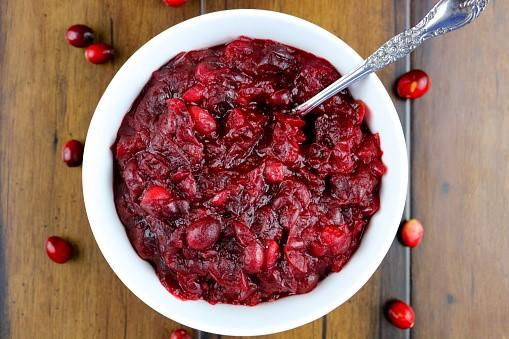
9. Fruit and dark chocolate desserts
You're unlikely to skip dessert on Christmas day, but there are a few tips and tricks to keep those calories under relative control while satisfying your sweet tooth:
Choose fruit-based desserts - Huffman recommends sweet and fruity desserts like mixed berry compotes over traditional pies and cakes to limit sugar and butter while filling up on beneficial antioxidants.
Skip the pie crust - if you are partial to pie, skip as much of the crust as possible to cut out the majority of your dessert calories. Or if you're baking for Christmas day, Gupta suggests ingredient swaps like oats and almond flour can make for healthier cakes and pies that taste just as rich and tasty.
Celebrate dark chocolate - if you're planning to bake with milk chocolate, then think about using dark chocolate or cacao which contain more heart-healthy antioxidants. If you find the taste too bitter, try swapping one half of milk chocolate with 70% dark chocolate in your recipe.
Dark chocolate fruit dessert
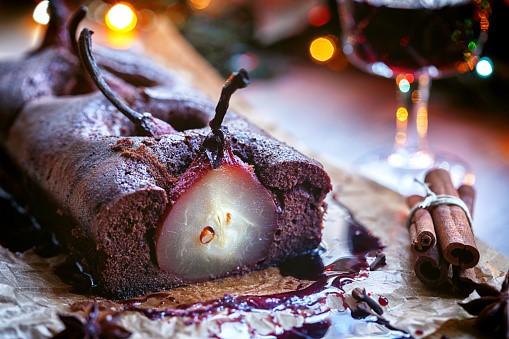
Patient picks for Healthy eating

Diet and nutrition
9 food swaps for a delicious and healthy Christmas dinner
Being healthy may not always be the first thing on your mind on Christmas day. But what if we said you could make some nutritious food swaps so your Christmas dinner's just as tasty, but secretly healthier?
by Victoria Raw

Diet and nutrition
Why too much sugar is bad for children
It’s no secret that sugar isn’t good for us and contributes to a range of health problems, from type 2 diabetes to heart disease. Despite this, research shows children eat way too much of the sweet stuff - and it’s putting their health at risk1.
by Lydia Smith
Continue reading below
Article history
The information on this page is peer reviewed by qualified clinicians.
Next review due: 2 Dec 2027
2 Dec 2024 | Latest version
12 Dec 2023 | Originally published
Authored by:
Amberley Davis

Ask, share, connect.
Browse discussions, ask questions, and share experiences across hundreds of health topics.

Feeling unwell?
Assess your symptoms online for free
Sign up to the Patient newsletter
Your weekly dose of clear, trustworthy health advice - written to help you feel informed, confident and in control.
By subscribing you accept our Privacy Policy. You can unsubscribe at any time. We never sell your data.